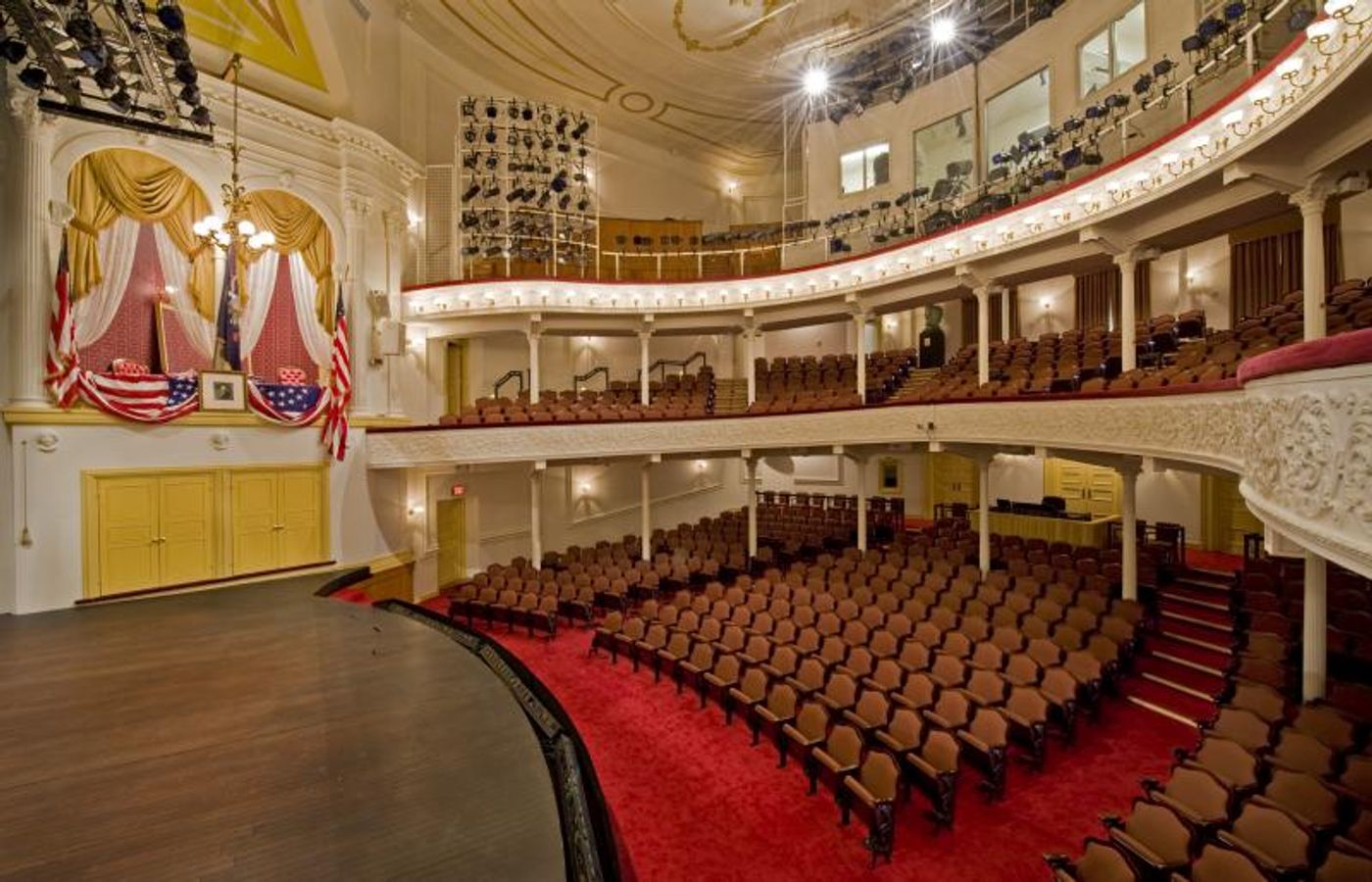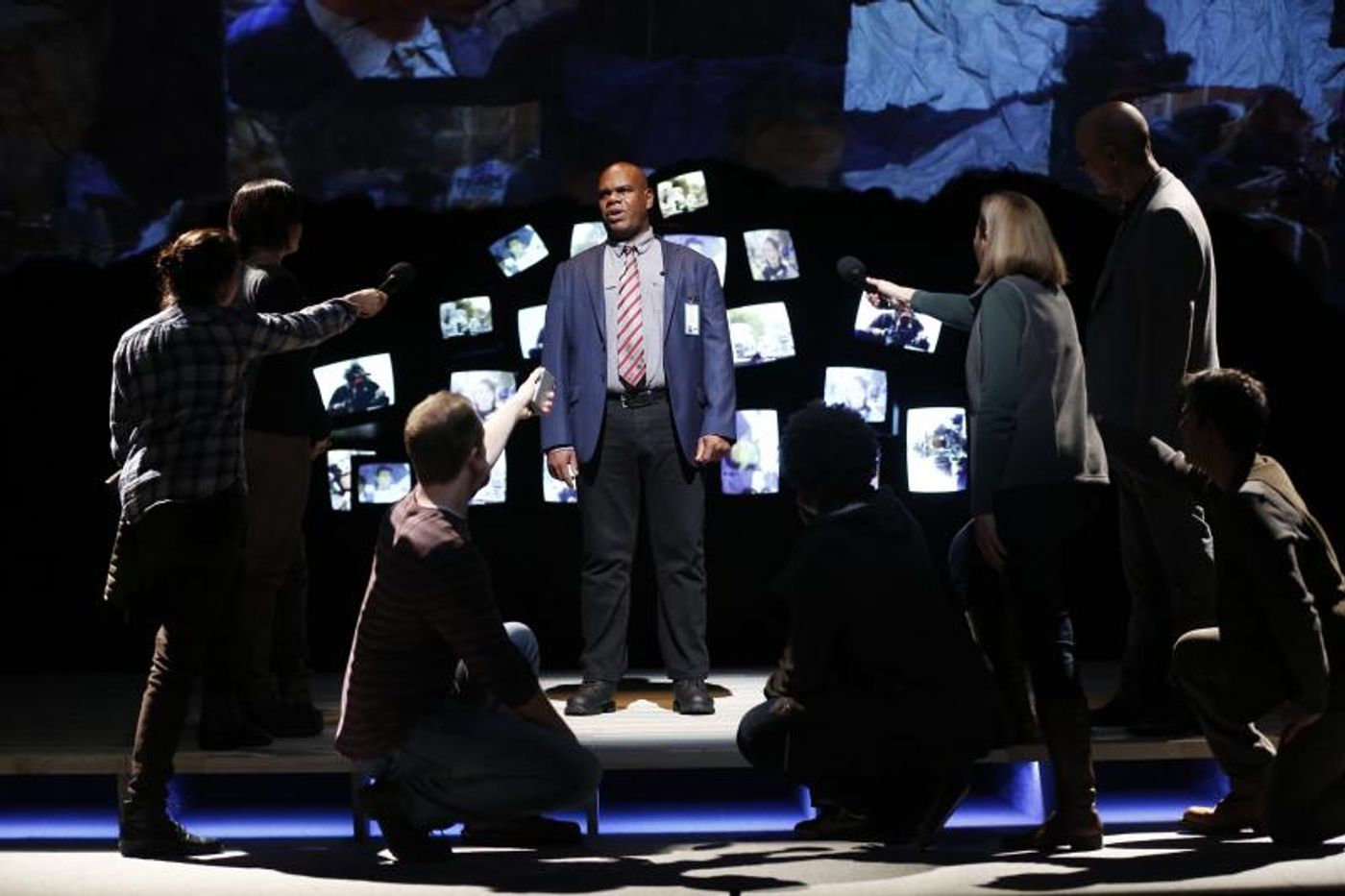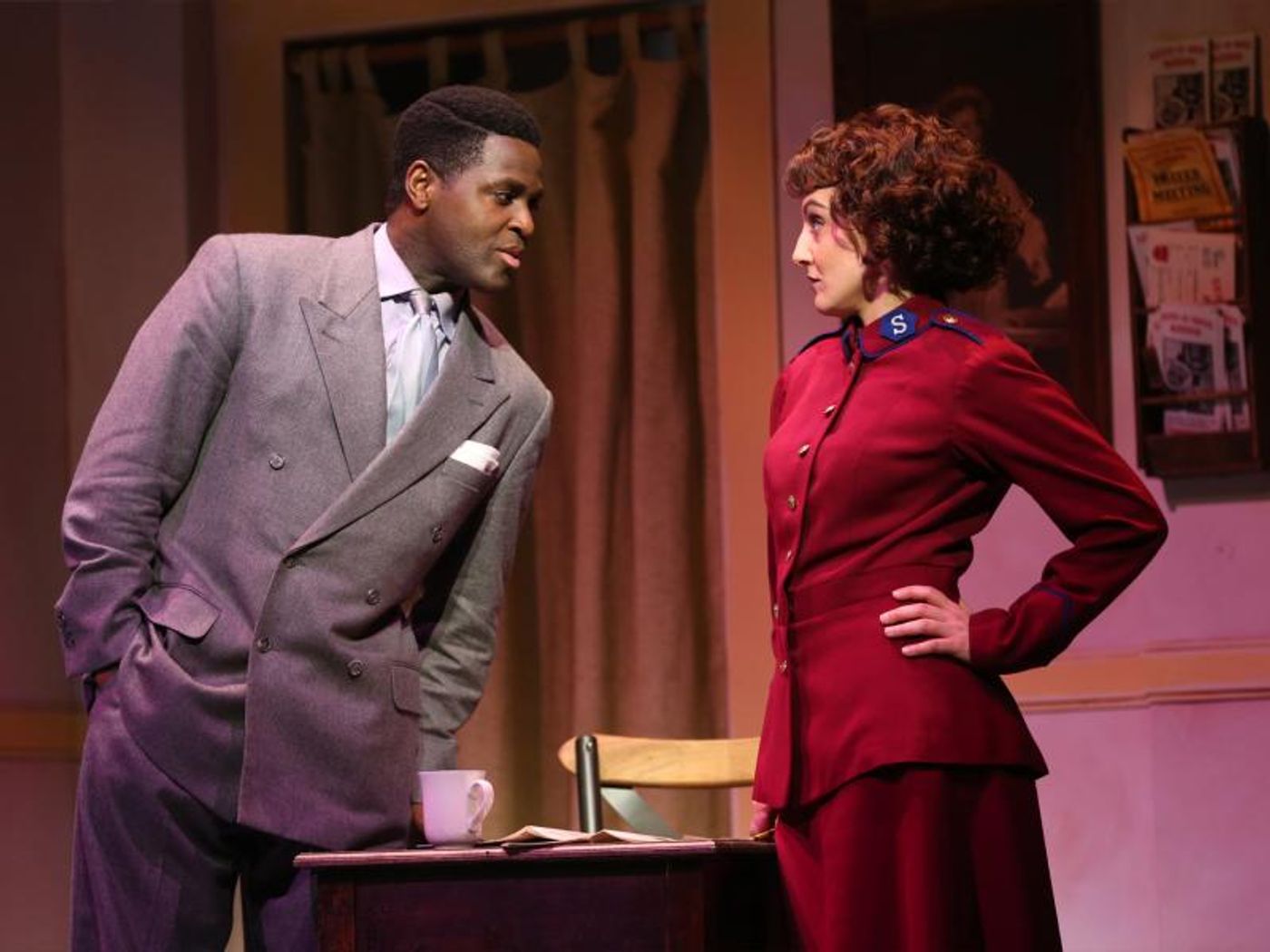Feature: When Resilience May Not be Enough

Ford's Theatre was days away from opening night of its production of "The Laramie Project" when guards stormed into the theater mid-rehearsal and ordered the production to halt.
It was October 2013 and the federal government was on the verge of a 16-day shutdown. Ford's Theatre, classified as a National Park Service site due to its historical significance as the place where President Abraham Lincoln was assassinated, was forced to close its doors.

"The Laramie Project" at Ford's Theatre
For the artists, losing access to Ford's was like losing their home. Displaced, but determined that the show must go on, they were hosted by Woolly Mammoth Theatre for press night. Then, after going dark for a period of time, they transformed a local church into a temporary performance space.
It was the memory of this resilience and creativity that kept spirits high in February of this year when rumors began to circulate of a novel coronavirus shutting down public life. The artists at Ford's -- in the middle of rehearsals for "Guys and Dolls" -- never assumed the worst. There'd be some changes -- masks and gloves, a few weeks off to monitor the situation -- but the threat of a closed theater was one they'd faced before and come out on top. The show would go on.
Or so they thought.
On March 13th, just before opening night of "Guys and Dolls," D.C. Mayor Muriel Bowser closed all theaters, restaurants, bars and clubs to prevent the spread of the coronavirus. Nearly four months later, Ford's has yet to reopen. For the first time in history, the show hasn't gone on.
For Brandon Prendergast, a stage manager for Ford's who has crewed 26 productions, the pandemic has created an uncertainty unlike anything he experienced during the shutdown.
"While we did not know when the shutdown would end, we knew that it was temporary," Prendergast says. "At no point did I think it would impact my income or the next project I had lined up. At no point did I fear my health and safety or the health and safety of my family and friends."
It's that fear that Craig Wallace sees as the greatest difference between the two crises. During previous government shutdowns Wallace, a Ford's Theatre associate artist who has played Scrooge in "A Christmas Carol" for several years, waited for the government to reopen Ford's and for audiences to return. But during the coronavirus, the government may reopen theaters, but Wallace worries that lingering public health concerns will keep audiences at home.
"We have to assure people that it's safe. However we do that -- masks, gloves, seating every other seat -- we have to assure people that if they come in and sit down they'll be okay," he says.
Until the public can be convinced, Wallace is willing to perform to an empty house. "I just want to get on stage. I can figure out the rest of it later. My focus is getting back on stage," he says.
But the bitter reality remains that, audience or not, no one is expected back on stage anytime soon. Since March, Ford's has cancelled 205 shows, including its 10-week run of "Guys and Dolls," as well as all daytime site visitation, guided tours and historic programs. Compared to any shutdown, that's a significant increase in cancellations, in the number of actors, musicians and staff directly impacted, and in terms of lost revenue.

pictured above in rehearsal, has been
forced to reschedule
Though not nearly as harmful as the pandemic, the 35-day government shutdown in 2018 -- the longest in history -- did have an effect on revenue streams for theaters like Ford's. A study by the Americans for the Arts' showed that, during the shutdown, arts organizations lost a third of their customers when closed to tourists and county visitors.
Summer is the season for tourism in the Washington D.C. area. But this year, Ford's, a known stop for history buffs, will be unable to lure travelers in with its production of "One Destiny" -- a one-act play about Lincoln's assassination -- or open its gift shop to curious passersby.
"You can totally see the financial ramifications," Wallace says. "There may not be any money to keep the house lights on. It's bad."
For some artists, pursuing non-theater work to pay the bills during the pandemic will be the only way to make it through months without work.
"It's unprecedented and scary," says Stephen F. Schmidt, an associate artist with Ford's who would have appeared in productions of "Guys and Dolls" and "One Destiny" this season. "How many theaters that existed on March 13th will make it through this? I hope they all do. But we know some won't."
.jpg?format=auto&width=1400)
about Lincoln's assassination that was cancelled
due to the coronavirus pandemic.
Schmidt has been a performing artist since 1973, working in New York City and Los Angeles, but even his experience in cities known for their job insecurity didn't prepare him for the limbo of a pandemic. "I don't think anyone in our business, in live theater, really understood what was happening till it was happening," Schmidt says.
When pressed about the future of live theater, Schmidt dismisses talk that the theater won't recover. Even when it was crippled by the advent of movie theaters, threatened by recessions and depressions and, today, a global pandemic, theater has always found a way. Schmidt describes it as a "fabulous invalid;" forever glamorous even at death's door.
"People who create theater will find a way to make it done," he says. "We learn to be resilient."
While Prendergast also believes strongly in the resilience of the theater, he points out that it has never faced the stress of a pandemic before. During the government shutdown, he says, "we simply waited for the switch to be turned back on."
In the case of the coronavirus, there is no switch.
Videos

